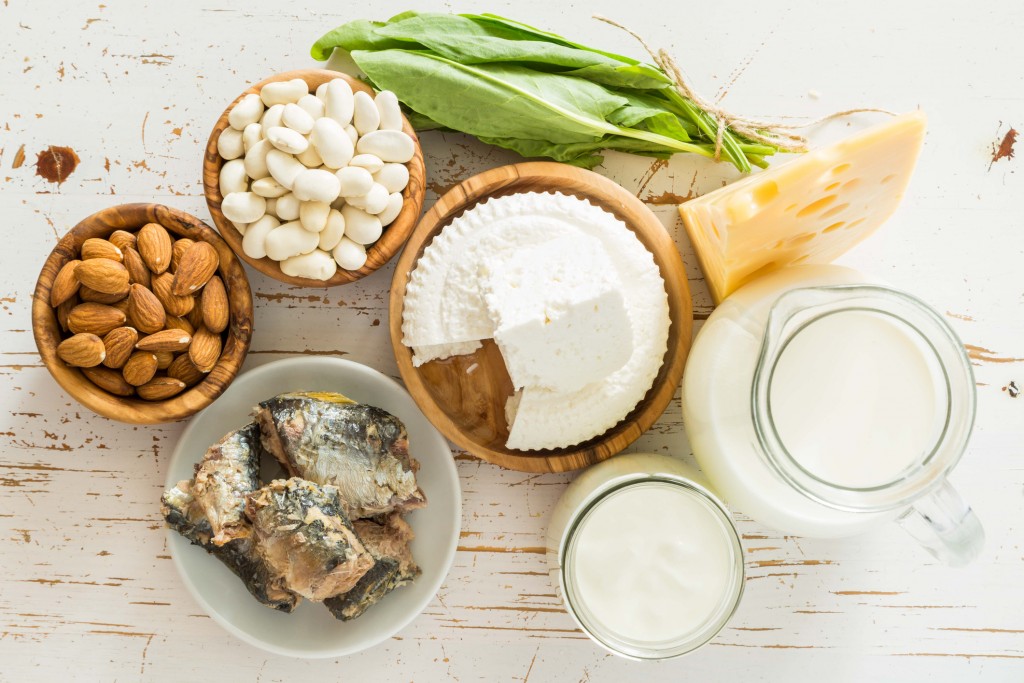
How much calcium do your bones need?
This mineral, in the right amounts, is essential for bone health.
Calcium is the most abundant mineral in the body and is vital for our health: it builds bones and teeth and maintains the structure of the body, allowing us to move and do all sorts of activities. It is also necessary for the correct working of nerve transmissions and muscle contractions.
A good level of calcium is essential to ensure strong bones and general well-being. When we do not eat enough calcium, the body takes it from the bones, which can lead to osteoporosis in the future. Eating calcium-rich foods is extremely important up until age 25, as this is when the bones are forming.
According to the Spanish Federation of Nutrition, Food and Dietetics Societies, the requirement for calcium in adults is approximately 1000 mg a day. However, there is no exact figure since the levels of this mineral can change according to physical exercise, exposure to sunlight and personal diet. In women aged over 50, and also during pregnancy and lactation, the recommended daily intake is 1200 mg.
6 foods rich in calcium
Recent studies suggest that there are other nutrients which are necessary for the assimilation of calcium, in order to reduce the risk of bone fractures in the future:
- Dairy products: these are the main animal source of calcium and contain proteins of high biological value and vitamin B12. Contrary to popular belief, yoghurt and cheese have twice as much calcium as milk. In a 100-gram serving, milk contains 120 mg, yoghurt 180 mg and cured cheese 650 mg.
- Sardines: oily fish is very rich in calcium and other nutrients that improve our metabolism, especially smaller pieces that are eaten with the fishbones. 100 g of sardines contain 382 mg of calcium. In addition to canned sardines in oil, you can opt for anchovies, herring, trout or mackerel, which in turn provide vitamin D, essential to ensure the calcium can build strong bones.
- Vegetables: dried beans, chickpeas, peas or soybeans contain high amounts of calcium. Legumes provide more than 140 mg of calcium per 100 g, i.e., more than what we get from whole milk.
- Nuts: rich in minerals such as magnesium, boron and calcium, they are key to bone health. Almonds stand out (270 mg of calcium per 100 g), as they also contain magnesium, protein, fibre, folic acid and vitamin E.
- Green leafy vegetables: the vegetables with most calcium are algae and dark green vegetables. Each of these vegetables have more than 30 mg of calcium. Broccoli and Brussels sprouts also have vitamin K, suitable for the production of osteocalcin (protein present in bones).
- Dried herbs: these are the foods with the highest proportion of this mineral. One tablespoon of basil, coriander, cumin, sage, oregano, thyme or rosemary contains about 100 mg of calcium. Moreover, these plants provide potassium and magnesium, which help stabilise the calcium in the body.
Excess meat, industrial cakes and pastries, soft drinks and high-salt foods, on the other hand, prevent our body from getting enough calcium, as they cause the mineral to be eliminated through our urine.
Remember that vitamin D is necessary to ensure the correct absorption of calcium, which can be achieved through 10 minutes of exposure to sunlight every day.
This post is also available in: Portuguese (Portugal)
